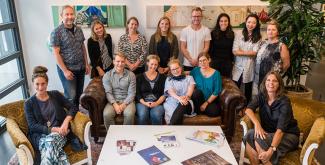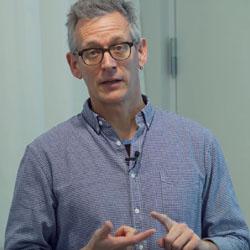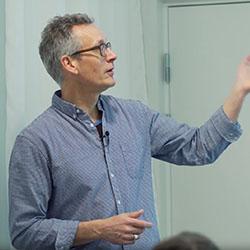Urban Futures Open Research School – new opportunity to participate
The first course within Urban Futures Open Research School was launched autumn 2017 with a focus on co-production and how to work and bridge the gap between research and practice – Co-production in action - from practice to theory (2x7.5 ECTS). There has been a great interest in the course ever since. We now open up for admission to the spring course.

For PhD students and practitioners
Former participants are PhD students and postdoctoral students from Architecture, School of Public Administration, Global Studies, Human Ecology, Industrial Ecology, Educational Sciences and Environmental Sciences, as well as decision makers and practitioners from City of Gothenburg, The Swedish Transport Administration, City of Stockholm, Bostadsbolaget (public benefit housing company), consultancies and ICLD International Center for Local Democracy.
Some previous participants about the course;
"The best thing was that I gained a new perspective on my work and our challenges in the city. The course gave me the chance to look upwards to some extent in my work, but it’s difficult to combine a real research perspective with more traditional administrative work. I think it’s important to do that but it’s not that easy." Fredrik Högberg, Environment Administration, City of Gothenburg.
"In-depth knowledge and a greater understanding of the complexity of urban development. Co-produced processes and transdisciplinary theories allow us to gain greater insights into and obtain suitable tools to allow us to work more sustainably at earlier stages and produce good results in the future." Eva Stockfelt, Sports and Associations Administration, City of Gothenburg
"There have been such fun discussions about large subjects that I don´t usually have with my colleagues at Chalmers, and that made me open my mind for things I've never previously reflected over." Alexandra Westin, PhD student, Chalmers
"The view I have gained is that co-production is a great deal about taking advantage of all the relevant knowledge available from the actors involved, sometimes they are found were you least expect them." Lisa Örberg, Trafikverket, The Swedish Transport Administration.
What is co-production?
At Mistra Urban Futures we have been have been working with co-production and a transdisciplinary approach since 2010. Which is also the focus of the course. Sustainable urban development is one of the greatest challenges of our time. Cities face major challenges such as climate change, large demographic changes, increased segregation and even more complex governance. In addition, different actors in society are face with so called wicked problems, challenges that cannot be solved by one discipline, organization or sector, cooperation is needed across these actors.
Co-production and transdisciplinary research is an approach that is undergoing intense development. It addresses the complexity of these challenges by integrating different actors into the same creative process. Actors from academia, practice, the business sector and civil society. The outcome is a new kind of knowledge which aims to be transformative, meaning that is wants to change and influence social development into more just and sustainable alternatives.
The aim of the course is to give insight into urban dilemmas from both practice and academic research perspectives. It provides tools, methods and theory for transdisciplinary research and invites national and international lecturers both from practice and academia.
About the course spring 2019
Co-production in action – from practice to theory course (2x7,5 ECTS) is divided into two parts. During spring 2019 the second course will be held. Its directed towards you who are dealing with so called ‘wicked urban problems’ in your daily practice or who aim to address such current and future urban challenges in your PhD research.
The course is given by Mistra Urban Futures/ Chalmers. It’s not mandatory to have taken the first course held autumn 2018, however already admitted participants to the autumn course will be given priority. The course is free of charge and it will be performed at the 'language spoken in the room', i.e Swedish or English depending on the participation at each moment.
Apply here
Apply here no later than December 3 2018
Read more
About the course
About the Urban Futures Open Research School
Questions?
Henrietta Palmer, Deputy Scientific Director, Mistra Urban Futures, henrietta.palmer@chalmers.se
Elma Durakovic, Elma Durakovic, co-ordinator, elma.durakovic@chalmers.se






